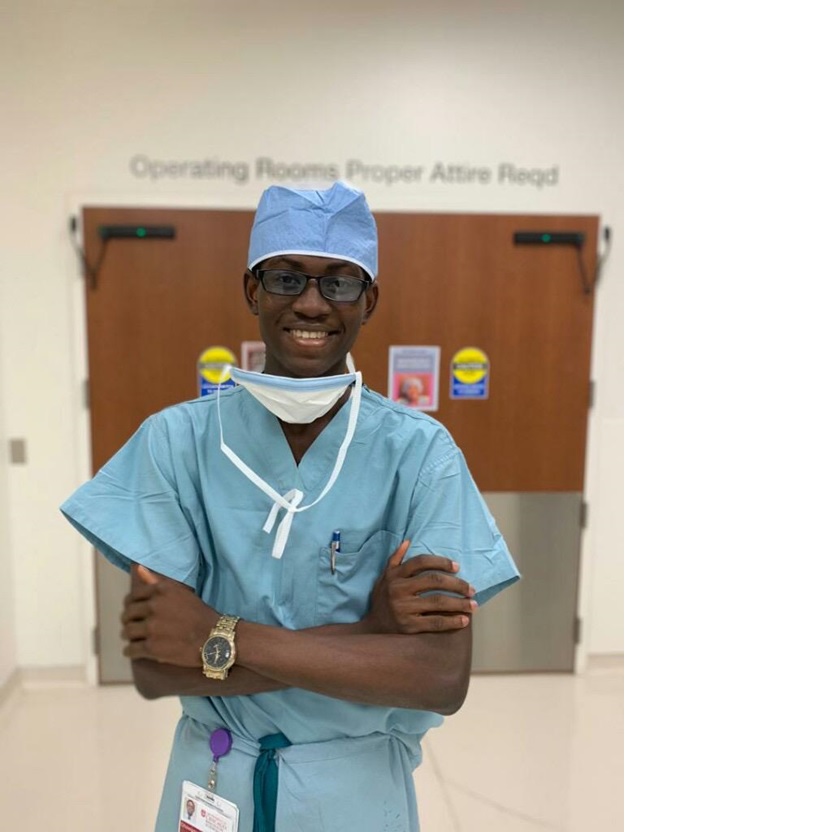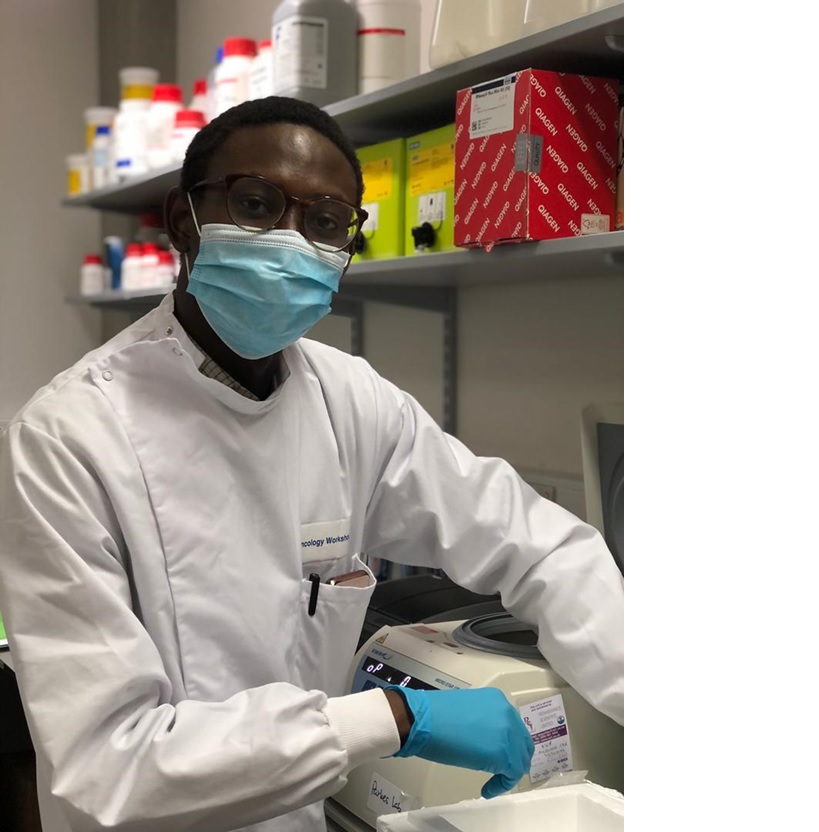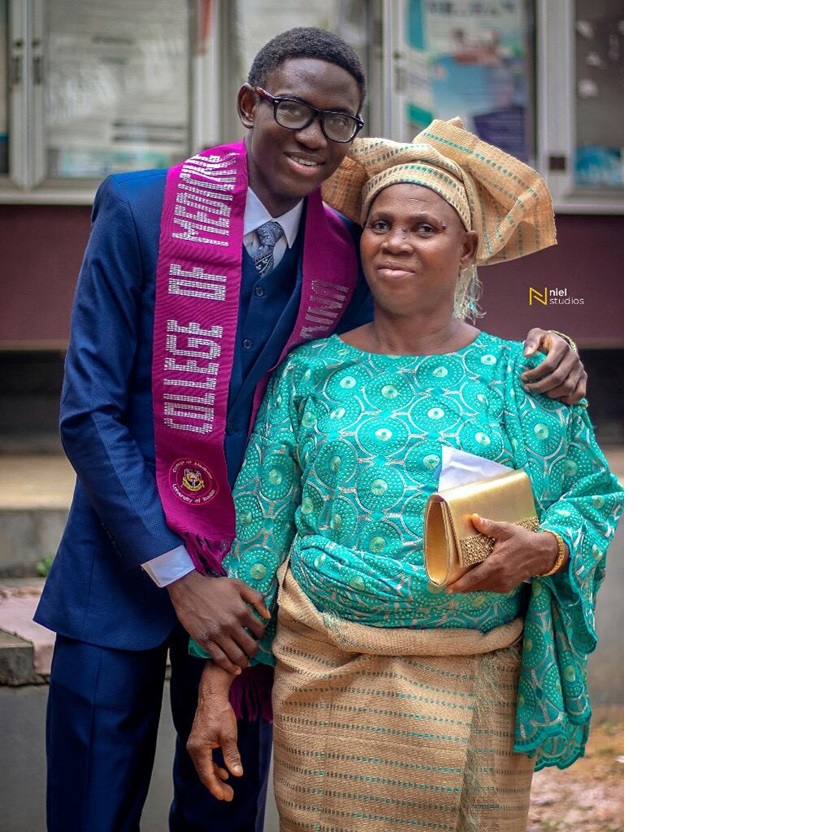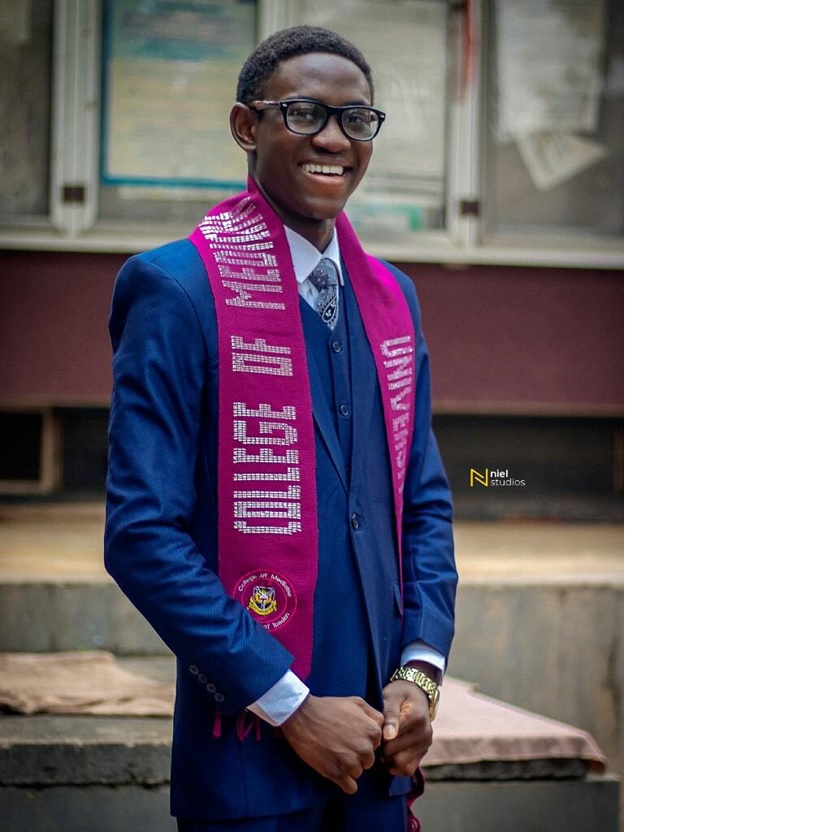The overall best graduating student of the College of Medicine, University of Ibadan (CoMUI) Class of 2019, Dr. Segun Afolaranmi, has been awarded the Gates Cambridge Scholarship for Ph.D. studies at the University of Cambridge. The Gates Cambridge Scholarship is one of the most prestigious and competitive awards globally. It was established in October 2000 by a donation from the Bill and Melinda Gates Foundation to the University of Cambridge.
The Biomedical Communications Centre of CoMUI engaged Dr. Afolaranmi in a comprehensive interview.
May we know your name, year of graduation…
I am Oluwasegun Afolaranmi. I graduated with the MB; BS class of 2019 and was privileged to be the class valedictorian. I joined the St. Nicholas Hospital, Lagos for my housemanship and subsequently received the Clarendon scholarship at the University of Oxford where I am currently completing my Masters in Immunology.
Can you tell us about your experience in CoMUI and how it culminated into this Cambridge opportunity?
To begin with, I am very grateful for the thorough clinical training we received at Ibadan. The impact of this was already obvious as my colleagues and I exchanged house job experiences. With regards my applications for graduate studies, I have benefited from the tremendous support of some faculty mentors and advisors. I am particularly grateful to Dr T.A. Lawal and Dr. Modupe Kuti for their continued support and guidance with navigating challenges. I believe that enjoying cordiality and mentorship from faculty significantly drives student success and I know that students yearn for this. A very important part of my CoMUI experience was being in the company of an extraordinary group of colleagues. The mutual support and encouragement to improve ourselves both within and beyond the classroom have been, and continue to be, very beneficial.
What was the selection process for the scholarship like?
The Gates Cambridge selection process has two phases. The first involves the regular admission process with the department of your choice within the University. Review of submitted credentials (letters of recommendation, CVs, transcripts, statements of purpose and research proposals, if applicable) is often followed by interview of shortlisted candidates. Departments then rank candidates based on academic potential, fitness for program and performance at interview, and the top ranked applicants are nominated to the Gates Trust.
In the second phase, the Gates Cambridge committee shortlists nominated candidates using the four Gates criteria- academic achievements, reasons for choice of course, leadership ability, and commitment to improve the lives of others. These criteria are interpreted broadly, and there’s not one single way to meet them. Finally, the shortlisted candidates are invited to Cambridge for another round of interview by a Gates Cambridge panel (this was replaced by a paper review this year, due to the pandemic) and the winners are subsequently announced. More information about the criteria and selection can be found at https://www.gatescambridge.org/apply/criteria/
What are your plans, hopes and aspirations, going forward?
I hope to be a clinician-scientist delivering compassionate patient care and doing impactful cancer research. I will spend the next few years solidifying my scientific training through the Ph.D. in Cancer Immunology. Thereafter, I hope to begin specialty training under great mentorship and with some protected time to continue asking my research questions. My overarching career goal is to be able to contribute to efforts that will significantly improve cancer survival, especially in Africa. Despite having lower disease incidence, the continent accounts for 70% of cancer deaths and a lot more needs to be done. I hope to also continue to get involved in social impact projects through The Ganglion Initiative and other avenues, even as I acknowledge my own privilege and growth in the face of very challenging circumstances.
What words of encouragement do you have for students who are currently on the MBBS programme?
I reckon that the MB; BS programme is inherently demanding and this can even be aggravated by unpalatable ambient conditions. But my advice to current students is to actively seek and make the most of opportunities. For instance, my decision to intern at a cancer centre during an unanticipated school break in 500 level and joining a genomics lab while awaiting our final results turned out to be critical for my graduate school opportunities. Furthermore, I encourage that they build meaningful rapport with colleagues and faculty to foster growth and lifelong relationships. It is also important to realize that the path to success is often tortuous and littered with road blocks. A helpful approach might be to take a long view, remain dedicated and re-strategize when necessary. I also like to say that it’s good to individualize your own definition and metrics of success as much as possible, and not necessarily be moved by what might seem to be “in vogue”.
Finally, I love to share the “Parking Space theory of Life” from one of my most influential writers. As University President, she advised students yearly to go for what they love, whether it is going to Mars, entrepreneurship, research or even stand-up comedy. Rather than parking 10 blocks from your most desired destination because you’re afraid there might be no space for you there, she says, and I paraphrase “Go to where you want to be, you can always reverse to where you have to be if that doesn’t work out”.
So, on this tortuous path to success who has been there for you? Who are your cheerleaders to whom you are grateful?
It has literally taken a village to raise me, and I am forever indebted to all those who have contributed to my growth, some of whom I do not even know. I am grateful to my family for making sure I got an education even when my background meant it could easily have been otherwise. I have been blessed with supportive teachers, mentors and friends from elementary school through medical school, and I am thankful for their efforts. I appreciate the tremendous effort of the Gates Cambridge Trust, Bill and Melinda Gates Foundation, Cancer Research UK Cambridge Institute and particularly my prospective supervisor, Dr Maike de la Roche, for the investment and belief in me. Finally, I am grateful to God for His unwavering faithfulness, and I return all the glory to Him.
P.S. The BCC crew took note of the fact that Segun included a picture with his Mum in the collection he shared with us. We then asked for his consent to interview her. We present to you excerpts from the phone conversation.
“Segun has always been a good child, and from primary school he had always excelled, getting prizes and making me proud.
He went on to Federal Government College, Odogbolu and the story was the same there. He never caused me any anxiety. Despite difficult circumstances, he was always a contented child.
On the question you raised about the role of parents, let me say this: Parents play an important role in the lives of children. Sometimes it happens that both parents are not on hand to bear this responsibility. Even before my husband died, I tried to pay serious attention to Segun’s needs, and we got a lot of support from his uncle, for which we are forever indebted. I depended on God to be there for my children and he has brought me joy”.
I am so happy and so grateful to God. I cannot tell you how happy and proud Segun has made me. And I am grateful to God. He is kind and he answers prayers. I thank his teachers at Somolu, at Odogbolu, in U.I and UCH. I cannot thank them enough. They have done well in the life of my son, God will bless them and their children too”.





